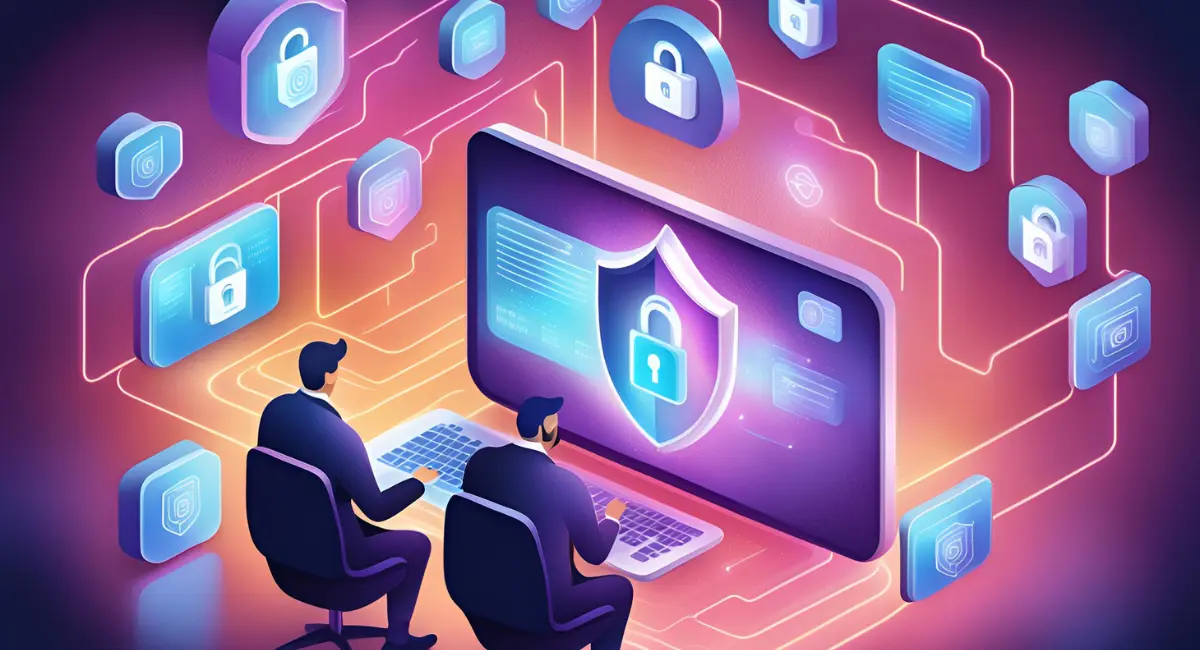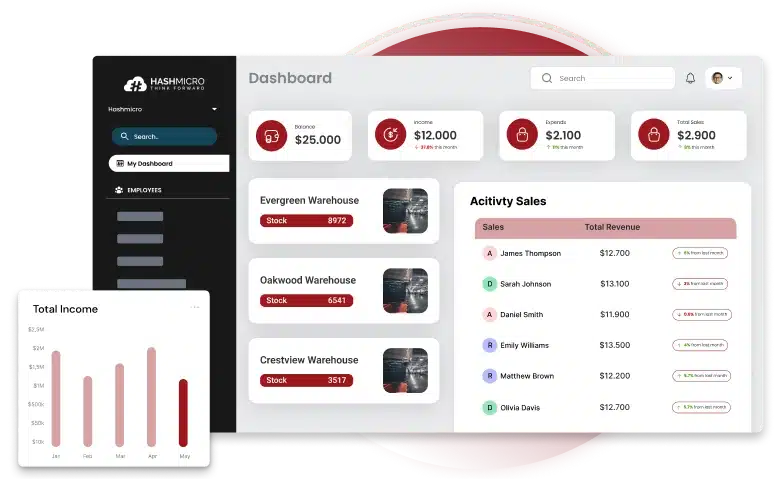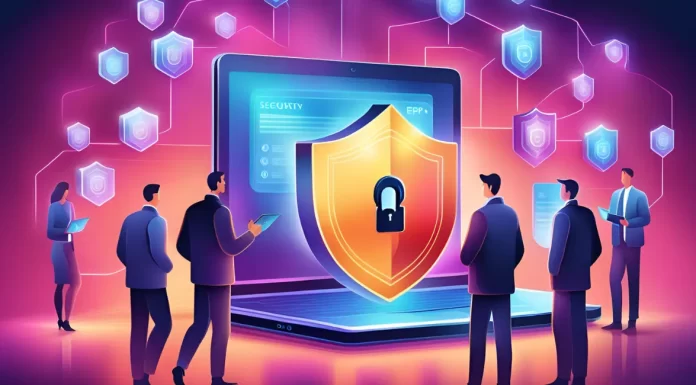As someone running a business, I’ve realized how crucial it is to protect our ERP system. In today’s digital world, cyber threats are everywhere, targeting the core of business operations and sensitive data. Even a small security gap can have major consequences.
I’ve learned that reliable protection isn’t just about stopping attacks—it’s about ensuring smooth, secure access for my team wherever they are. Understanding how to strengthen our defenses has been key to safeguarding critical information while maintaining productivity.
If you want to see how an ERP system can help secure your business and streamline operations, take a look at HashMicro’s ERP solutions. Their tools make it easier to protect data, manage access, and stay one step ahead of potential threats.

Key Takeaways
|
1. Exploring the Role of VPNs in ERP Security
Implementing a VPN can enhance your ERP system’s security to new heights. It serves as digital armor by encrypting your internet connection, making it significantly more difficult for hackers to breach.
When used alongside the best ERP software, a VPN adds an extra layer of protection to sensitive business data, ensuring secure access for remote teams and safeguarding critical operations.
Remote work often means relying on networks that lack stringent security measures. These gaps are playgrounds for cybercriminals. But with a robust VPN, you’re constructing an impenetrable conduit for your data flow.
Regularly update your VPN software to maintain top-notch security standards. By prioritizing these measures, you protect not just data but also the trust of clients who rely on your services and information every day.
2. Best Practices for Remote Access and Data Protection
Implementing robust security practices starts with choosing the right tools. Begin by using a reliable VPN to protect your ERP system, especially for remote access. You can test options like a free VPN trial by CyberGhost to evaluate its effectiveness before committing.
Ensure that all employees use this secure connection when accessing sensitive data outside the office. Additionally, clear policies should be established around password management and two-factor authentication to enhance security layers.
Regularly audit your systems and educate staff about potential threats, such as phishing scams. Conduct training sessions to help everyone recognize suspicious activity. These steps lay a strong foundation for securing not only your data but also maintaining the integrity of your business.
3. Understanding Common Cyber Threats to ERP Systems

Cyber threats targeting ERP systems are diverse and constantly evolving. Here are some common types you should be aware of:
- Phishing Scams: Devious as they are, these tricks coax users into exposing critical information by masquerading as credible entities.
- Malicious Software: This digital poison can seep into your system, purloining data or disrupting your operations.
- Ransomware Incursions: An insidious form of digital extortion that barricades access to crucial data until you cough up a ransom.
- Internal Security Slips: Sometimes, the risk roams within your walls. Employees with access could unintentionally open the gates to breaches, whether through carelessness or deliberate acts.
To combat these threats, regularly update your software and conduct vulnerability assessments.
Fortify your defenses with robust passwords bolstered by multi-factor authentication – a formidable duo. Keeping abreast of emerging threats is equally critical to ensure your ERP system stands resilient in the dynamic terrain of digital security.
4. Integrating Multi-Factor Authentication into Your Strategy
By weaving multi-factor authentication (MFA) into your security fabric, you’re adding a vital shield to your ERP system. MFA elevates security protocols beyond mere password reliance, insisting on extra verification measures from users.
This could include:
- One-off text message codes.
- Biometric confirmations such as fingerprint or facial recognition scans.
- Personalized security questions with answers known solely to the user.
Regularly review and update authentication methods as new technologies emerge. Emphasizing strong password policies alongside MFA creates a comprehensive security approach that protects your ERP system from evolving cyber threats while maintaining operational efficiency.
5. Adopt an ERP System with High Security
 A robust ERP solution not only reduces security risks but also offers advanced protection against evolving threats. Opt for a system with proven security protocols and cutting-edge technology, like HashMicro ERP, one of Singapore’s leading ERP solutions.
A robust ERP solution not only reduces security risks but also offers advanced protection against evolving threats. Opt for a system with proven security protocols and cutting-edge technology, like HashMicro ERP, one of Singapore’s leading ERP solutions.
Key security features of HashMicro ERP:
- Integrated Business Functions: Combines essential operations into a single, secure platform for streamlined and safe workflows.
- Encryption & Secure Access Controls: Protects sensitive data from unauthorized access with advanced encryption and role-based controls.
- Continuous Monitoring: Monitors system activity in real time to detect and prevent potential threats.
- Multi-Factor Authentication (MFA): Adds an extra layer of security to ensure only authorized users can access the system.
- End-to-End Encryption: Safeguards data in transit and at rest to maintain confidentiality and integrity.
- Proactive Security Maintenance: Regular software updates to counter emerging cyber threats and vulnerabilities.
- Adaptability & Resilience: Ensures smooth operations while staying ahead of cybercriminals through evolving security measures.
6. Cultivating a Robust Cybersecurity Ethos
Instilling a robust cybersecurity ethos is paramount for your organization. Nurturing an atmosphere of open dialogue on security protocols and creating a safe space for team members to report anomalies can enhance vigilance.
Regular training updates ensure everyone stays sharp on the newest threat landscapes. With cybersecurity as a cornerstone at all echelons, your team becomes the first line of defence, safeguarding critical data and upholding the fortress that is your system’s integrity.
Conclusion
In an era where digital threats continue to grow in complexity, securing your ERP system is no longer optional, it’s a fundamental step to safeguarding your business’s future. Implementing robust security practices is essential to protecting sensitive data, enabling secure remote access.
Adopting a high-security ERP system like HashMicro can be a game-changer in this process. With HashMicro, you’re not only choosing a secure and reliable platform but also investing in an ERP solution.
Experience firsthand how HashMicro ERP can protect and transform your business with a free demo now!

Frequently Asked Questions
-
What is an ERP system?
An ERP (Enterprise Resource Planning) system is software that integrates core business processes—such as finance, HR, procurement, inventory, and sales—into a single platform to streamline operations and improve data visibility.
-
How does an ERP system benefit a business?
ERP systems improve efficiency by automating manual tasks, centralizing data, enabling real-time reporting, and facilitating better decision-making across departments.
-
Can ERP systems be customized for different industries?
Yes. Modern ERP systems can be tailored to meet the specific needs of various industries, including manufacturing, retail, F&B, logistics, and professional services, ensuring relevant functionality and workflows.
































